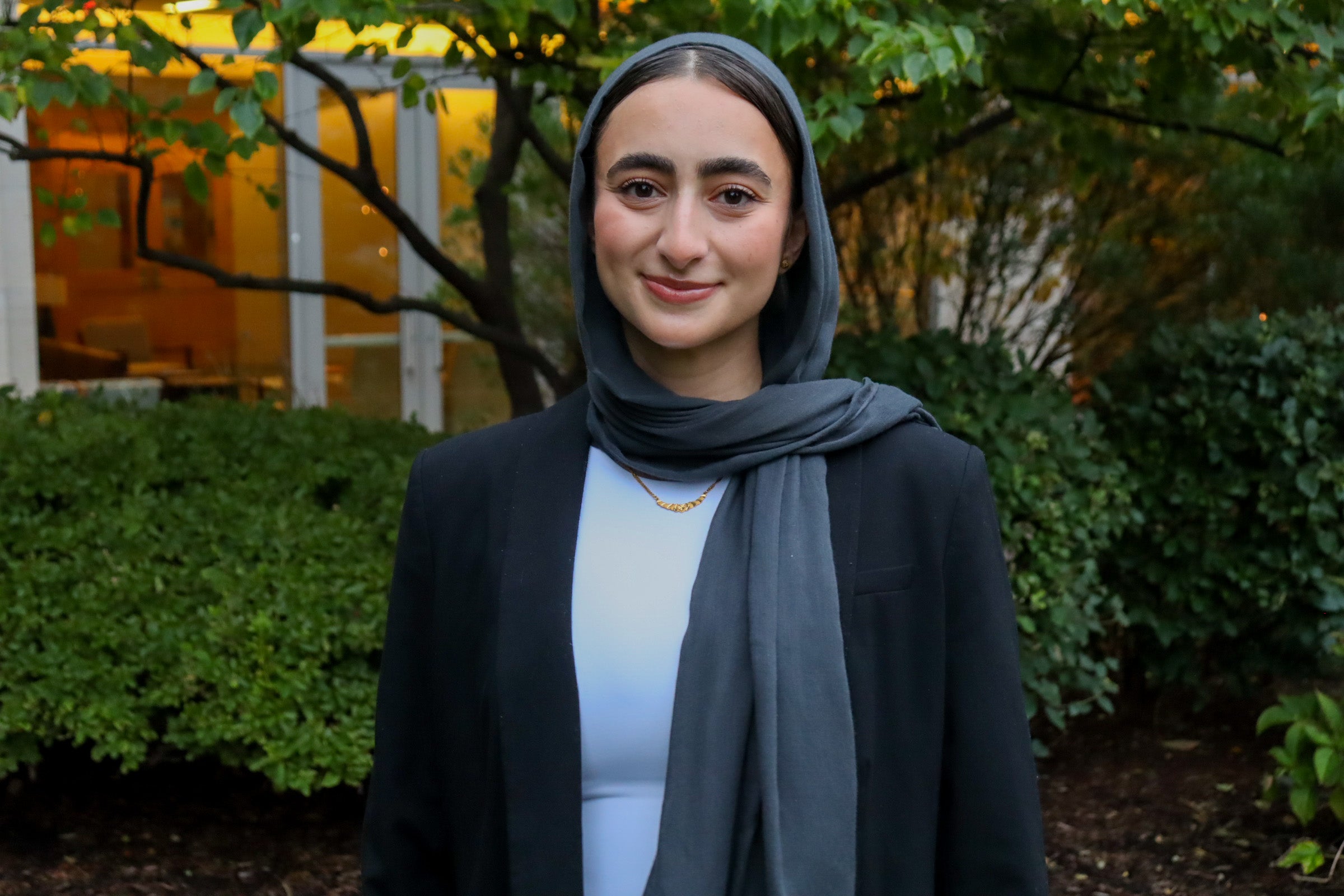Dec 19, 2023
By Reema Doleh ’25

Reema Doleh ’25
Growing up in south Brooklyn, the entrepreneurial community and the immigrant community often overlapped. Every small business that lined our street was owned by first-generation Americans. The small business community serves as a powerful tool for employment and economic growth in New York City, but it can be difficult to fathom the hurdles of starting your own business. My father dreamt of being able to own his own business, a small grocery store stocked floor to ceiling with mango juice, olives, and other goods from his home country, but he struggled navigating the legal hurdles of starting a business alongside managing one’s immigration status. It was a role where he could be immersed in the lives of his new community while connecting them to his home. His small shop in the heart of Brooklyn now serves as a hub for community gathering. Like many other immigrants in New York, entrepreneurship was a tool of financial empowerment for my family.
In November of my 1L fall, I attended an OPIA community discussion titled, “Transactional Public Interest Law: Not an Oxymoron!” with Wasserstein Fellow Taylor James. James discussed the breadth of the legal practice that falls under the umbrella of transactional public interest law. Through strategic partnerships with nonprofits, entrepreneurs, and community-based organizations, James discussed how the law can be leveraged to create better opportunities for low-income communities. This lunch talk piqued my interest in transactional public interest work and after a one-on-one meeting with the fellow, I decided to spend my 1L summer as a legal intern on a community and economic development team with a non-profit legal services organization in New York, gaining professional experience in the transactional public interest law space.
I continued this work by joining the Transactional Law Clinics (“TLC”) as a 2L. As a student attorney with TLC, I had the incredible opportunity to join the Community Enterprise Project (“CEP”) and tackle complex legal issues for local entrepreneurs like my father. I began developing these skills during 1L as a student attorney with the Harvard Law Entrepreneurship project. In this student practice organization, I advised a Harvard student-led business venture, which exposed me to legal research and memo writing from a client-centered perspective. I further developed my skills as a client-centered lawyer in TLC, working on projects that ranged from assessing the feasibility of developing a non-profit housing cooperative to registering trademarks and copyrights for various nonprofits and small businesses in the area. During my semester, I was exposed to different types of substantive work: (1) legal research, (2) legal advising, (3) liability waiver/contract drafting, and (4) community outreach with local entrepreneurs. TLC provided me with an opportunity to apply my legal research skills, gain contract drafting skills and presentation skills.
CEP provides transactional legal services to nonprofits and small businesses while also partnering with community organizations to meet the needs of local entrepreneurs by providing on-site and virtual workshops on a variety of legal and business topics. One of these workshops was on commercial leases. Alongside another student attorney, I conducted extensive research on the intricacies of these leases. We partnered with Bowdoin Geneva Main Streets, a non-profit organization that acts as a hub for local businesses and community members. Bowdoin Geneva also provides technical and holistic support to promote business growth. Our presentation was attended by over a dozen community members and local entrepreneurs, each with their own experiences and interests in commercial leases. We discussed the nuances and provisions of a commercial lease and answered complex legal questions from the attendees. This experience emphasized the importance of community lawyering in the greater Boston area. Working with Boston-based clients and conducting a presentation in Dorchester, MA gave me an opportunity to leave the Harvard bubble and engage with the greater community. It is an honor to connect with and serve entrepreneurs across Boston.
Public interest transactional law is a unique intersection of community lawyering and client advocacy. Transactional law generally addresses diverse needs outside of the courtroom, through contract drafting, intellectual property, entity formation, and business acquisitions among other legal actions. Public interest transactional law, however, does all the above while considering the needs of those typically underserved and most ignored by the legal field.
I am grateful for my time as a student attorney in TLC for allowing me to further my experience in the unique intersection of public interest and transactional law. Whether a student is interested in public interest transactional work or transactional work in big law, participating as a student attorney in TLC will allow you to gain practical legal skills outside of the traditional law school classroom.
